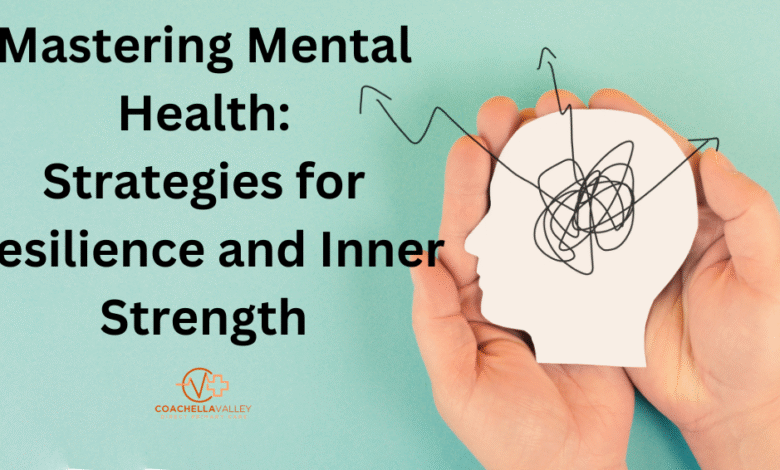Why Resilience Matters for Mental Health Professionals

Resilience is a critical quality for mental health professionals, who often face emotionally intense situations while supporting others through trauma, grief, and chronic psychological challenges. The ability to remain balanced and grounded amid these pressures helps prevent burnout and compassion fatigue. Resilience also promotes emotional agility, allowing professionals to adapt to evolving demands in clinical settings and maintain a high standard of care. For psychiatric-mental health practitioners, cultivating inner strength is essential not only for their well-being but also for modeling healthy coping strategies to their clients.
Many mental health professionals invest in continued learning and development to build and sustain resilience. Enrolling in psychiatric nurse practitioner online programs, such as those offered by Northern Kentucky University, enables practitioners to deepen their clinical knowledge while maintaining the flexibility needed to manage personal and professional responsibilities. These programs support long-term career growth and provide tools to navigate the complex realities of mental health care with strength and compassion.
Risk Factors and Challenges in Mental Health Careers
There’s no question that mental health care comes with unique stressors. Professionals not only navigate high caseloads but also bear witness to intense suffering, trauma, and systemic barriers their patients face. Every session can bring new ethical dilemmas, unexpected disclosures, or crisis interventions, forcing providers to make quick yet thoughtful decisions. Vicarious trauma—from deeply listening to the details of patients’ lives—can leave clinicians carrying a heavy emotional load.
- Working with limited resources or organizational support can create ongoing tension and frustration.
- Constant administrative tasks add to long workdays, leaving less time for rest and personal commitments.
- Provider shortages in many regions lead to increased caseloads and the pressure to accept new patients, even when already stretched thin.
- Struggling to maintain boundaries between work and personal life can chip away at emotional reserves over time.
The unpredictability of mental health work is part of its challenge and its reward, but these persistent stressors highlight why resilience-building is not optional. Addressing these everyday realities with intention can mean the difference between a flourishing, sustainable career and early exhaustion.
Core Strategies for Building Resilience
Resilience has moved from being viewed as an innate personality trait to a dynamic set of learned skills. Anyone can strengthen resilience with practice and the proper support. Effective strategies are both personal and collective. Setting clear professional boundaries is foundational—not every client or situation can or should be taken on. Limiting the number of high-risk cases, learning to say “no” with compassion, and accepting that clinicians have limits are crucial for energy preservation.
- Reflection and debriefing are valuable tools. Taking time after challenging sessions—journaling, discussing with a colleague, or pausing for mindful breaths—helps process difficult emotions before they set in.
- Professional supervision and mentorship provide avenues for unbiased feedback and guidance, especially when dealing with complex diagnoses or crisis cases.
- Practical time management—including using scheduling software, blocking non-clinical time, and delegating when possible—prevents the constant encroachment of work into personal life.
Structured resilience interventions, like psychoeducation, peer support, and personalized self-care plans, make a measurable difference. Organizations that offer these programs see reduced turnover and better staff morale.
The Role of Peer Support and Supervision
Individual effort is necessary, but resilience flourishes through strong peer networks. Peer support is essential in combating the isolation that can accompany challenging work. Mental health professionals benefit from regular gatherings, gaining shared insights, validation, and camaraderie. Whether through formal supervision or informal check-ins, these interactions help practitioners process complex cases and celebrate successes.
Supervision is also crucial for resilience. Clinicians receive guidance and reassurance by critically examining cases and seeking feedback, ensuring they don’t face tough decisions alone. These peer connections create a safety net during challenging times, fostering a sense of shared mission and mutual learning that sustains motivation and prevents burnout.
Self-Care Routines for Well-Being
Consistent self-care isn’t just about pampering—it’s about preservation. The daily habits professionals build outside work can be as important as clinical skills. Regular physical activity, for example, helps regulate mood and support sleep quality—two factors directly linked to resilience. Creative outlets and hobbies—like painting, gardening, or music—give the mind a place to rest and recharge.
- Numerous studies have shown that daily mindfulness or meditation can reduce stress and improve concentration, even when practiced for just a few minutes.
- Structured sleep and nutrition routines prevent the physical decline often accompanying relentless emotional labor.
- Blocking time off on the calendar and respecting it, like any other professional commitment, preserves energy for personal and professional relationships.
When these routines are prioritized, mental health professionals consistently report higher satisfaction, more energy for their patients, and a clearer sense of purpose.
Incorporating Mind-Body Practices
Mind-body practices such as breathing exercises, yoga, and guided imagery are recognized as practical tools for stress reduction. Many healthcare organizations have implemented mindfulness moments at the beginning or end of shifts, enhancing staff morale and focus. Research shows that even a few minutes of deep breathing or mindful walking can improve mood, resilience, and patient care outcomes. Simple practices like grounding exercises before sessions or mindful pauses between appointments help reset the mind and reduce emotional carryover, making professionals less vulnerable to chronic stress and more attuned to their patients’ needs.



